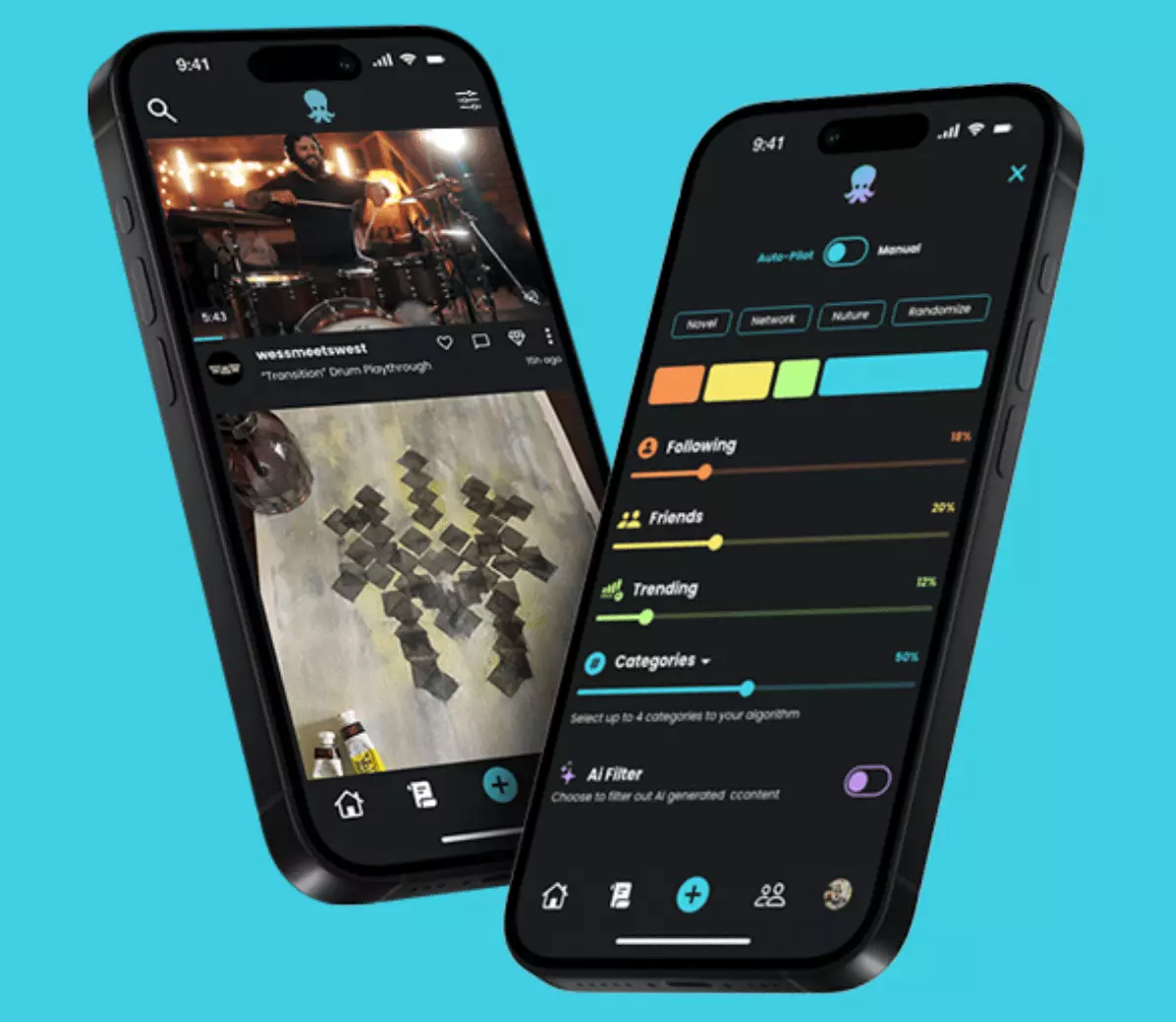In a digital landscape dominated by giants like TikTok, Instagram Reels, and YouTube Shorts, Neptune emerges as an intriguing new player aiming to redefine the short-form video experience. Currently in beta, the app has garnered significant interest with a staggering 400,000 users on its waitlist, as reported by its founder, Ashley Darling. But what sets Neptune apart from its well-established competitors? At its core, Neptune champions creativity and connection, positioning itself as a platform where content reigns supreme over follower counts.
Neptune’s entry into the market comes at a time when TikTok’s future is shrouded in uncertainty due to regulatory challenges and fluctuating user sentiment. This leaves a window of opportunity for alternatives that prioritize user interaction over mere numbers. As Darling reflects, many creators and users reminisce about a time when social media fostered creativity and fun—elements they feel have been overshadowed by the competitive nature of current platforms. With Darling’s background as a talent director at OPTYX, she is acutely aware of the needs of creators, particularly those who are often overlooked.
A Platform for Creators, Not Competition
Neptune’s ethos revolves around elevating creativity. Instead of merely focusing on follower metrics, the app introduces an innovative feature termed “ghost metrics,” allowing creators to hide their total likes and followers if they choose to do so. This move acknowledges the mental strain that obsession over numbers can impose on content creators. The reality is, many talented individuals often feel disheartened when overshadowed by those with larger audiences. By enabling users to opt out of this visibility, Neptune aspires to cultivate a nurturing environment where creators can thrive based on the content they produce rather than the popularity they amass.
Moreover, unlike platforms that leverage algorithms focusing on engagement statistics, Neptune’s algorithm seeks to prioritize user interests and video quality. This shift could dramatically alter creators’ experiences, providing a space for emerging voices to be heard without the burden of competing against established stars with large followings. As Timur Tugberk, Neptune’s chief marketing officer articulates, “We put the power back in the hands of the creators who actually built the internet.” In a world increasingly dominated by corporate agendas, this statement resonates profoundly.
Innovative Features and User Experience
Neptune also acknowledges the need for a seamless user experience. Its “Hop Back” feature, which allows users to continue watching a video right where they left off, addresses a common issue in digital media consumption—the fear of losing your place during refreshes or accidental exits. Such attention to user experience can significantly enhance user engagement and retention on the platform.
However, it’s crucial to mention that Neptune is still in its infancy. Currently, its functionality is somewhat rudimentary, featuring only a video feed and a search function. Users who rely on in-app editing tools or messaging capabilities may find Neptune lacking at this stage. The absence of these features raises important questions about the app’s potential growth. While Neptune aims to foster a sense of connection, its limited functionality might deter users who have become accustomed to more robust features offered by its established competitors.
Potential for Monetization
Regarding monetization, Neptune plans to introduce various revenue streams such as tips, live streams, and subscriptions, thus creating diverse avenues for creators to earn income. This approach aligns with the growing demand for platforms that not only showcase talent but also provide sustainable economic opportunities for creators. The directive to prioritize real connections over mere follower counts could resonate well with users, especially as the digital ecosystem trends toward supporting independent content creators.
By acknowledging the varied needs of content creators and addressing the pervasive competitive culture of social media, Neptune stands poised to capture the attention of individuals seeking a fresh approach to short-form video creation. If the platform successfully evolves by incorporating essential features and maintaining its core values, it could usher in a new era in the digital space. In a market ripe for disruption, the potential allure of Neptune lies not just in its vision but in its commitment to rebalancing an often one-sided playing field.

